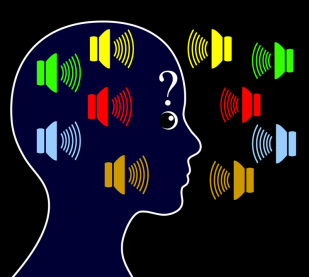All of our courses are free and you can start them when you want to, studying at your own pace. Some of the courses are badged, so you can print a certificate of completion and include the course on your LinkedIn profile.
Social work and social care
-
Introducing social work: a starter kit
Learn more to access more details of Introducing social work: a starter kitThis free course, Introducing social work: a starter kit, provides a glimpse into some of the things that social workers do and looks at why and how social work is done. The course is designed for people who might be interested in and curious about social work practice. It will also be a useful initial resource for those who may be thinking ...

-
An introduction to social work
Learn more to access more details of An introduction to social workDo you want to learn more about the social work role and develop your understanding of some of the theory associated with social work practice? This free course, An introduction to social work, begins by introducing key ideas, values, the social work process and the skills needed for social work practice in the UK. You will then move on to look...

-
Supporting and developing resilience in social work
Learn more to access more details of Supporting and developing resilience in social workWhat does it take to become a resilient practitioner in social work? This free course, Supporting and developing resilience in social work, will guide you through some important concepts. An understanding of ‘emotional resilience’ and ‘professional leadership’ will help to guide you through taking a positive approach to problems that arise in ...

-
Lead and manage change in health and social care
Learn more to access more details of Lead and manage change in health and social careChange is everywhere in health and social care work and can evoke a variety of emotions, from excitement and eager anticipation, to fear and outright hostility. In this free course, How to manage change in health and social care, you will explore the role of managers in the change process and the skills required for managing and leading change ...

Care and caring
-
Social care in the community
Learn more to access more details of Social care in the communitySocial care involves the challenge of supporting people who, for a variety of reasons, are unable to function without assistance or supervision. This free course, Social care in the community, focuses on one important area of social care, home care for older people.

Communication
-
Effective communication in the workplace
Learn more to access more details of Effective communication in the workplaceImprove your workplace relationships and boost your professional impact with this free course on effective communication. Discover how to express yourself clearly, understand others better, and adapt your communication skills for a range of situations, from everyday conversations to the digital workplaces of the future.

-
The importance of interpersonal skills
Learn more to access more details of The importance of interpersonal skillsTo succeed in management you need good interpersonal skills, you need to understand how to deal with other people. This free course, The importance of interpersonal skills, will help you gain an awareness of your own skills and understand that an awareness of the interpersonal skills of others can help us enormously in dealing with the work ...

-
Play families: Using toys to open up communication with your child
Take part now to access more details of Play families: Using toys to open up communication with your childChildren can communicate well using toys to express themselves. Use this activity with your child so that they can open up about how they are feeling.

Aging and supporting older people
-
Population ageing: a global health crisis?
Learn more to access more details of Population ageing: a global health crisis?This free course, Population ageing: a global health crisis?, focuses on two major issues of our time – ageing societies and global health. It provides you with an introduction to ageing societies and their implications for global health – implications which are only just beginning to be fully understood. The course will help you to deepen your ...

Mental and emotional health
-
Making sense of mental health problems
Learn more to access more details of Making sense of mental health problemsOver the past century there has been a radical shift in responses to people who experience mental health problems. In this free course, Making sense of mental health problems, you will learn about how key perspectives in the field have made sense of mental health problems. By directly relating key perspectives to a case study, you will reflect ...

-
FREE Mental Health Tips and Resources
Read now to access more details of FREE Mental Health Tips and ResourcesThe last three years have seen people's mental health and wellbeing tested like almost never before. Concerns over health, isolation, family, finance, careers and education have affected us all in one way or another, so it's vital we all take the time to consider our own mental health and wellbeing, as well as those around us. Here are some FREE...

-
How to do counselling online: a coronavirus prima
Learn more to access more details of How to do counselling online: a coronavirus primaThis course will help you understand the range of technology-based counselling types and make you aware of key technological, legal, ethical and clinical considerations for safe and effective online counselling.

Study a free health care course
-
COVID-19 nursing and healthcare: learning to help you in practice
Read now to access more details of COVID-19 nursing and healthcare: learning to help you in practiceIf you're returning to practice to support the NHS, NHS in Scotland, NHS Wales or Health and Social Care in Northern Ireland, OpenLearn has a range of free courses available for you to refresh your knowledge and skills.

Article
Level: 1 Introductory
Take your social work and social care career further
-
My career goal: Social care
Read now to access more details of My career goal: Social careYou can change lives by using your personal skills to aid those in need. Your communication skills, resilience and empathy are key assets when working in social care, a crucial societal structure that matters to everybody.

Article
Level: 1 Introductory
Rate and Review
Rate this article
Review this article
Log into OpenLearn to leave reviews and join in the conversation.
Article reviews